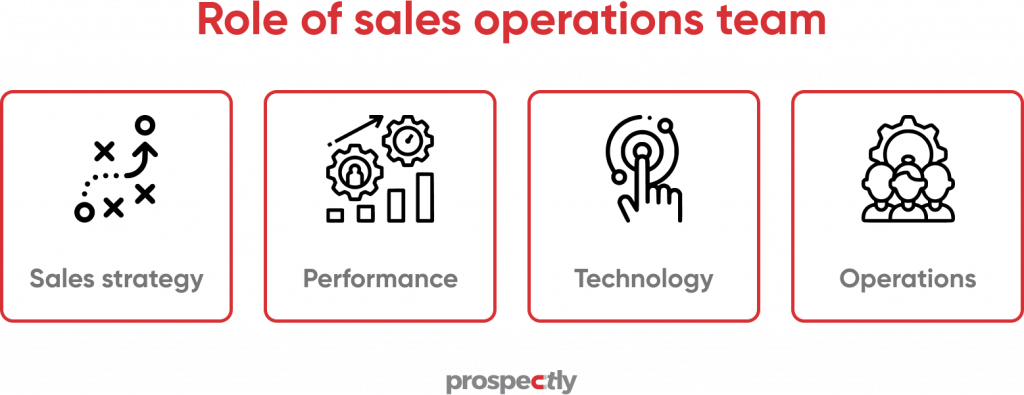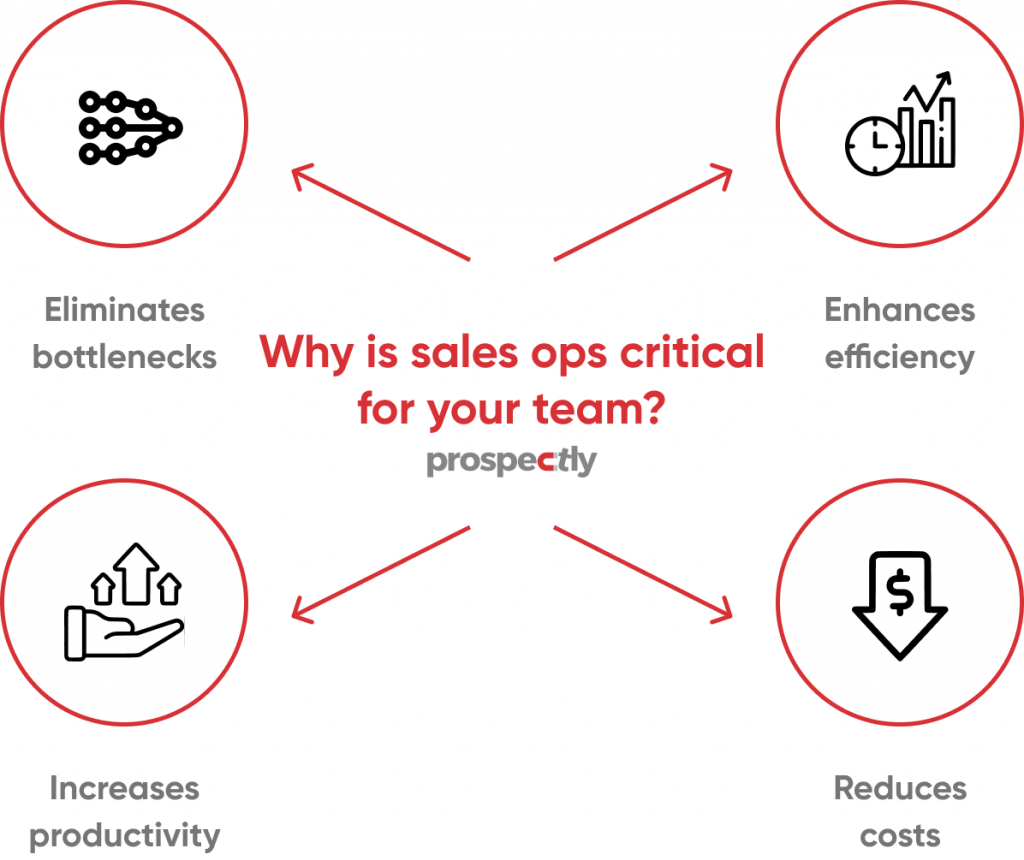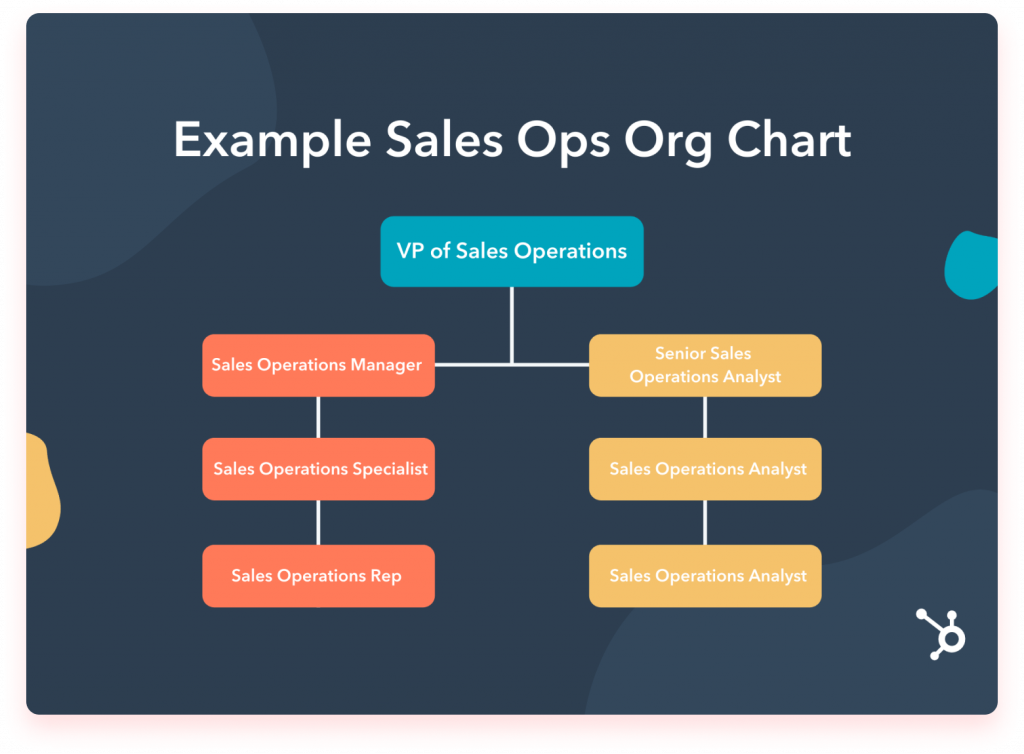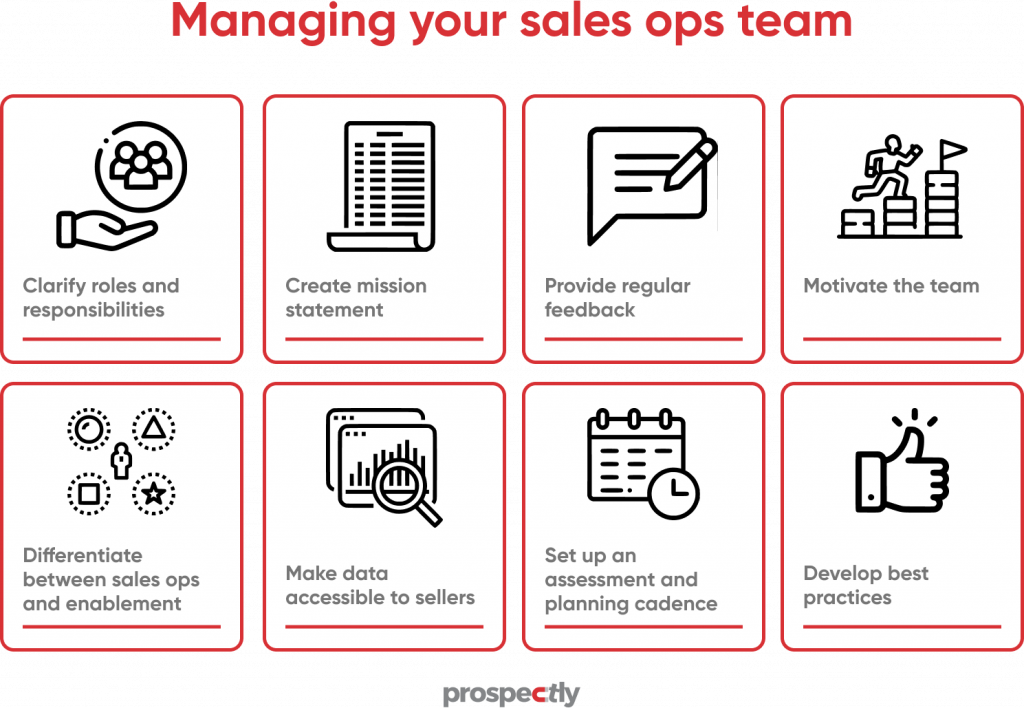Cracking the sales operations code: Key to success

Sales operations, you say? What’s that? Your salesforce likely has a handful of people who are unable to move leads to the next stage. They follow up occasionally, but in general, there is plenty of room for improvement. This is where your sales operations team comes in. This blog will help you understand how you can use this core function to your advantage to achieve greater success.
What is sales and operations planning?
Sales operations is the support function of a sales team. It manages and optimizes all the activities that contribute to successful revenue generation.
Sales ops & planning are the backbone of your organization. If you don’t have a solid approach, you’ll end up with a disjointed and inefficient process. It can lead to missed opportunities, poor customer experiences, and lost revenue.
Saleshacker defines sales ops as: “the unit, role, activities, and processes within a sales organization that support, enable, and drive front line sales teams to sell better, faster, and more efficiently.”
Want more information about how sales operations works and why it’s important? Read on!
Primary roles & responsibilities of sales operations

The role of sales operations is to provide the right tools, processes, and systems to maximize your sales team’s effectiveness. It’s creating a seamless experience for your buyers throughout their entire journey with your business.
Sales ops bridges the gap between sales and marketing by ensuring that all of your customer touch points work perfectly to drive revenue. Here are the essential sales ops’ functions.
1. Sales strategy
A sales operations team crafts a clear-cut vision of your company, revenue goals, and the strategy to achieve them. Some strategic decisions zero in on:
- Analyzing data
- Optimizing the sales process/shortening the sales cycle
- Using proper sales technology
- Elevating conversion rates
- Forecasting sales
- Territory planning
- Sales training
- Evaluating and executing sales methodologies
2. Performance
Are there any bottlenecks in your systems that lead to the sellers’ underperformance and poor customer experience? The sales ops team exists to smoothen the entire process to upgrade performance and revenue. Here are examples of activities that the team does:
- Deciding on the company’s key metrics
- Lead management
- Sales rep compensation schemes and incentives
- Coaching and mentoring
- Sales frameworks and tactics adoption
- Optimizing sales activities
3. Technology
Tech-savvy tools have proven to be a game changer in sales. But reps can become overwhelmed by multiple service providers. In this situation, the sales op team can own and manage the tech stack to ensure salespeople focus on what matters: selling.
Check out the following aspects under technology roles.
- Customer relationships management tools (CRM) adoption
- Apps and software integration, including data analytics
- Tools for communication and conferencing
- Task automation
- Email automation
- Content sharing and management
4. Operations
Administrative and operational tasks can slow down sellers and take up much of their time. And this is where you need the sales operations and planning department to take on these responsibilities. Examples include:
- Hiring, onboarding, and training of the top talent
- Product training
- Managing and maintaining communication channels
- Sales territorial and accounts allocation
- Providing market intelligence
- Compensation and incentive management
Sales operations vs. sales enablement
You may wonder whether sales ops is the same as sales enablement. They’re two sides of the same coin because they serve as modern sales organizations’ critical functions.
Sales ops is the planning, execution, tracking, and analysis of all sales activities. Sales enablement is creating the tools and resources that help reps succeed in their job. The two often overlap, but they’re not the same.
Here are two ways that sales operations differ from sales enablement:
1. Sales operations is more strategic, while sales enablement is more tactical.
2. Sales operations is more follow-through on existing plans, but sales enablement is more about developing new tools.
What is the role of a sales operations manager?
A sales operations manager coordinates the activities of all parties involved in the selling process. This includes sales executives, inside sales representatives, customer service representatives, and support staff.
They ensure all the selling processes are in line with your company standards and goals. Also, they create a smooth selling process that allows your sellers to focus on closing deals rather than on daily tasks.
Sales operations manager duties
Here are 7 examples of the sales operations manager’s roles.
1. Process improvement
2. Vendor management
3. Lead generation and lead management
4. Lead qualification and scoring
5. Lead nurturing/scheduling meetings with prospects/clients
6. Closing deals for sales reps (coaching)
7. Managing client expectations
8. Choosing and managing sales tech tools
9. Forecasting sales
Why is sales ops critical for your team?

Sales operations provides a repeatable process that lets salespeople focus on selling rather than administrative tasks. It’s all about efficiency: enabling a smooth flow of information between different departments and teams. Every member in your organization gets to know exactly what they need to do at any given time.
Here are some reasons why sales operations is vital for your team:
Help eliminate bottlenecks
Without systems in place, your team may not have a clear understanding of what each person’s responsibilities are. It can lead to roadblocks and delays when trying to push deals through the pipeline. A good sales operations system ensures everyone knows their role and how they fit into the larger picture (and it won’t take long for them to adjust).
Increase productivity by providing visibility into current activity levels — and future forecasts
Salespeople typically work with multiple leads at once. So, they must know how their activities impact others’ sales cycles — especially if deadlines are looming or they’re working on a deal that needs some extra attention.
Reduce costs
A good sales operation can help increase your company’s bottom line. It does this by reducing costs associated with new customer acquisition and increasing customer lifetime value (CLV).
Enhance efficiency
Good sales operations helps improve efficiency. It automates manual tasks like lead generation, follow-up emails, and other similar activities that take up valuable time for your employees.
How to start a sales operations team
You can start your sales ops from scratch using the following 7 steps.
Step 1: Define your sales ops system
First things first, determine how the team will function, their roles and duties, and how they’ll achieve them. Earlier, we mentioned some responsibilities, such as streamlining the sales process, hiring & compensation management, etc.
Step 2: Decide and agree on the primary KPIs
At this stage, consider the key metrics your team will use to analyze and evaluate performance. Examples include the conversion rate, average deal size, etc.
Step 3: Create a sales ops team structure
You should recruit the following talent to build your sales ops team structure.
- Sales operations analyst
- Sales ops manager
- Technical operations advisor
- Sales operations rep
See the sales operations organization chart below.

Step 4: Hire well
If you want your team to succeed, ensure they have the right skills and attitude for the job. Look at their resumes and cover letters carefully to confirm they fit into your culture and align with what you need them to do in this role.
Step 5: Conduct sales operations training
Now that your team is up and running, you need to provide training to hone their sales operations skills. Continuous coaching and mentoring fire up the team and shows them how to handle challenges.
Step 6: Get the proper sales ops tools
Ensure they have the right tools and technology at their disposal. Sales ops specialists need access to CRM software, marketing automation platforms, and data visualization tools. They help the team accurately manage each stage of the sales cycle from start to finish.
Step 7: Evaluate and tweak your sales ops system
It’s crucial to continuously assess how you execute your sales operations to see what’s working or not. That’s because sales technology or software always changes, your rivals introduce new products, etc. Because of this, you need to constantly monitor and update your team with the latest developments in your industry.
How to manage your sales ops team?

Here are 8 things you can do to manage your sales ops team successfully:
1. Clarify roles and responsibilities
Set clear expectations about what your sales ops team should be doing. Also, make sure their goals align with those of other teams in your organization. This’ll ensure that everyone’s efforts contribute to the overall success of the team as a whole.
2. Create a clear mission statement
Related to the above is a mission statement that outlines the purpose and the path to success for your sales ops team. It’s a crucial document that affects the team’s strategy, decisions, and roles in your company.
3. Provide regular feedback
Give reports on performance metrics such as lead conversion rates or pipeline velocity. It lets them know how well they’re doing compared with others in their role, industry, or region. It’ll ensure that they have the information they need to improve over time and continue driving results for your business moving forward.
4. Motivate the sales ops team
You should also offer incentives for teamwork within your sales ops team. It can take many forms — from small parties after hitting key milestones together, like crushing a revenue goal.
You may even just get everyone together at lunch once a week. It allows your reps to chat about what’s going on in their lives outside of work.
5. Distinguish sales ops responsibilities from sales enablement functions
These two departments can have conflicting roles if it’s unclear what each must do in your business. Take time to spell out the objectives and duties of each team and how they can collaborate to achieve your sales goals.
6. Ensure data is accessible to sellers
To work effectively, your reps must have info on opportunities, territories, and accounts at their fingertips. As a result, sales ops teams should ensure the data is easily accessible on the salespeople’s dashboard.
7. Set up a cadence of assessment and planning
Your sales ops department needs to be on top of its game and this can only happen if you develop regular meetings to assess its performance. In these sessions, you can review what the team has accomplished and their plans.
Also read: Sales meetings: Best practice to run effective sales meetings in 10 minutes
8. Develop sales operations best practices
As oil is to the car engine parts so is the sales ops team to the entire sales organization. Saleshacker says: “sales operations should be the hub of best practices and standards in your company.”
You can leverage sales operations by documenting, evaluating, sharing, and applying the best practices throughout your company. This way, everyone will be in sync and will be applying them uniformly.
What are the essential parts of sales operations?

Typically, your team will focus on five critical functions.
1. Forecasting
Sales forecasting is predicting how much revenue you’ll generate over a specific time. It allows your company to plan for the future and make decisions about production and inventory levels, staffing requirements, and financial planning.
2. Establishing pricing models
The team must properly formulate price guidelines and proposal procedures. To produce actionable insights for sales operations, guidelines need to be accurate, useful, and well-crafted.
3. Data management
Data management is essential for sales operations because it helps provide better insights on how to improve the sales process. Data drives decision-making and performance across an organization. The sales ops team must manage it well to ensure all stakeholders can leverage it.
4. Analytics and reporting
Reporting and analytics are powerful tools for assessing successes and losses, as well as helping you make decisions.
5. Responsibility
Sales operations holds reps accountable by monitoring their sales activity and providing feedback on their performance. They also ensure sellers are following company policies.
Bonus: In March 2021, LinkedIn released a report on the state of sales operations. It identifies the key 10 trends in this field. Feast on the following sales ops stats to up your game.


Ready to set up a potent sales ops team?
Sales operations is crucial for your organization’s success. It’s responsible for managing and overseeing the entire sales process from start to finish. Sales operations managers ensure you meet all sales goals, fulfill customer needs, and offer support to the sales team to excel.
Also read: 11 guiding principles to a bulletproof sales negotiation strategy
Don’t forget to share!




